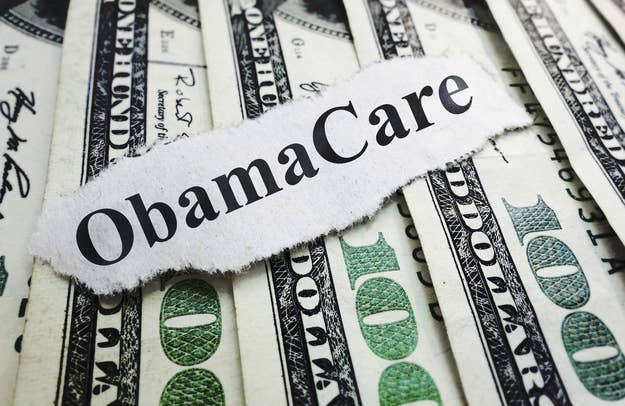
WASHINGTON — A couple dozen of New York's top leaders from labor and health care sat at a roundtable late February in a room near the top of the New York City District Council of Carpenters building to discuss one thing — how to fix the Affordable Care Act.
The mood was upbeat and forward-looking at the six-hour conference. But there was also a sense of uneasiness about what may still lie ahead, the consequences of the plan many of them once so ardently supported.
"Let's not spend 90 minutes pissing on Obamacare," warned Gene Carroll, the moderator for the event's final roundtable talk and co-director of the New York State AFL-CIO Cornell Union Leadership Institute.
It was meant as a joke, but wasn't completely in jest. Though the several dozen invited guests generally agreed Obamacare was a good first step, they all wanted to see changes.
The height of union disagreement now stems from the so-called Cadillac Tax, which is a 40% excise tax that, starting in 2018, that will be imposed on plans exceeding a certain threshold. Union plans can exceed these thresholds and employers who are required to foot the bill are worried it'll bite into profits, according to union sources.
According to several union leaders, those worries are starting to play out at the bargaining table, or employers have warned them it soon will.
"We're used to fighting big fights over wages, or pensions, or other terms and conditions of work. But we've always been pretty well successful on finding the accommodations on health care," International Association of Machinists President Thomas Buffenbarger said.
"Now some of the biggest employers in the country are saying, 'We are prepared for war,'" he added.
National union representatives have met with officials from the White House, Department of Labor, the Treasury Department, and others on several occasions to try to make their case for changes to the health care law but so far haven't had much traction.
"Although the agencies have declined a number of requests from unions, discussions continue about ways to address union concerns," one union health care official told BuzzFeed.
The official did not specify what requests have been denied.
In a statement, a White House official acknowledged that a "variety of stakeholders" have met with officials about the health care law, but declined to elaborate on what those discussions have entailed.
"We have met with a variety of stakeholders, including labor leaders to talk about issues important to working families, including how the Affordable Care Act is making health insurance more affordable and accessible for workers and employers alike and will continue working together to help more Americans gain access to quality, affordable coverage," the official said.
Union tensions with Obamacare have been on the rise as negotiations with the administration have remained unfruitful and employers have become more reluctant when it comes time to renegotiate health benefits.
While the White House hasn't yet appeased any union demands, it has made changes. That includes the recent delay of the soon-to-be canceled plans considered substandard by the new law until well after the midterms and the end of Obama's tenure. And labor leaders have taken notice.
"It's clear they have chosen not to use what I believe is the same administrative authority and executive authority to address some of the issues that we have been pointing out that they have found basis to use for other areas," International Association of Fire Fighters General President Harold Schaitberger told BuzzFeed.
Unions last year demanded their Taft-Hartley health care plans be eligible for individual tax breaks on the marketplace, as well as the tax break they already receive for being an employer-provided plans. Late last year the Treasury Department issued a letter stating that it did "not see a legal way" the plans could receive the additional break.
Others argue that employers are simply using Obamacare as an excuse, and that health care conditions aren't much different than they would've been had the law not been instated.
"It appears that employers are using the ACA as an excuse for try [sic] to accomplish a lot of things that they've hoped to do for some time – make further cuts to benefits," Wayne Ranick, communications director for United Steelworkers International, told BuzzFeed in an email. "So yes, the ACA has created some new twists and challenges at the bargaining table, but it's more like variations on a theme than wholesale new concepts that we've never seen before."
Labor officials believe employers are starting to bring up the Cadillac Tax now, four years before it goes into effect, for one of two reasons.
One is that many employers don't yet fully understand the tax, and want to hedge on costs now before they get blindsided by them in a few years. The other, like Ranick argued, is that employers understand exactly what's going on but want to use the still murky and confusing tax to shift health care costs to workers.
To at least try to quell that first worry, a union health care official said they are hopeful that the Treasury Department, along with the Internal Revenue Service, will release guidelines to employers for dealing with the Cadillac Tax.
But while several delegates at the event in New York had plenty to say on the downsides of Obamacare, others were insistent that they focus on the root of the problem.
"Why aren't we all on the same side against the high cost of health care?" Mitra Behroozi, executive director of Benefit and Pension Funds for the local 1199 of the Service Employees International Union, asked at the roundtable.
As of now, many labor leaders are on the fence — torn between continuing support for a law they once helped campaign for, and protecting their members from the consequences they believe the law might lead to.
"We're just on the political merry-go-round," said Schaitberger, the IAFF general president.
